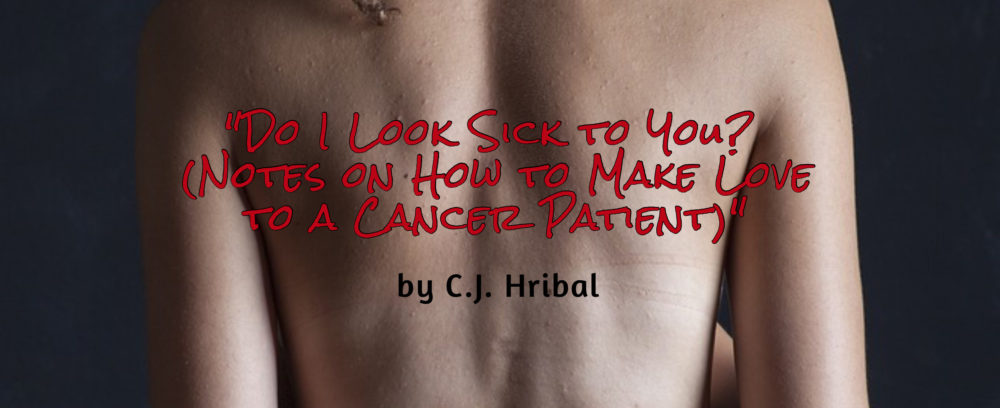Author C.J. Hribal was in love, so he asked his love to marry him. She was a sharp-witted, one-hundred-watt-smile woman, a mother, an academic and a cancer warrior. She had also just been re-diagnosed with cancer after five years of remission. “Officially, I asked her to marry me after she got her re-diagnosis. I knew I was going to before the re-diagnosis, but the ask came after,” Hribal said in a phone interview. Love is love is love, but some of us might recoil at the thought of a marriage proposal in the face of a cancer diagnosis. Love implies new life and attachment; cancer implies possible death and letting go, but one does not negate the other. Nor did it alter the fundamental truth that he loved her, in sickness and in health.
Quickly, though, their life transitioned from the happy couple to the couple dealing with cancer. Hribal explained that he became her full-time caretaker, going to all her appointments with her. He had to “try to be objective [about treatment decisions] while still emotionally processing.” He did  that with his pen, scribbling thoughts on whatever was handy and writing journal entries throughout their journey. His fiancé died in January of 2013.
that with his pen, scribbling thoughts on whatever was handy and writing journal entries throughout their journey. His fiancé died in January of 2013.
Those writings served as fodder for his short story, “Do I Look Sick to You? (Notes on How to Make Love to a Cancer Patient),” published in the Bellevue Literary Review. The story won a 2018 Pushcart Prize. “I like to joke that my fiction is about 27.5-percent autobiographical. Obviously, it’s a lot more this time.” Hribal is a professor of English at Marquette University and faculty member with the MFA Program for Writers at Warren Wilson.
He said he wrote the story to explore the “inchoate sense of loss” that comes with caring for a terminally ill partner. “Intimacy and illness are often not written about,” he said. There are stories about sex, and stories about the trauma of cancer, but not many stories dare to approach the complicated nature of being a romantic partner while also being a cancer patient, or being a caretaker while also being a lover. Hribal hoped to give voice to caretakers and patients within the trauma while also providing those on the outside with an empathetic imagining of what it’s like. “I wasn’t looking to make it palatable or understandable, but emotionally accessible.”
“I wasn’t looking to make it palatable or understandable, but emotionally accessible.”
Making it accessible required writing the story in such a way that “makes sense of what can’t be made sense of.” Hence Hribal’s choice to tell the story as instructions, using second person as one might in a how-to webinar. It begins with the narrator narrating his awkward reluctance to have sex with his girlfriend, the cancer patient. She’s having none of it. “’What, you’re afraid I’ll break? You’re afraid it’s contagious? Trust me, the cancer will not stick to your dick.’” This combination of humor and mercilessness is characteristic of Hribal’s fiction. “The reader can laugh at the joke,” he said, and the comedy throws the story’s darkness into relief. “At the same time, the comedy and terror are leading them to develop intimacy with the characters.”
Laughter and tears, intimacy and distance, for many, that’s the gut-wrenching experience of cancer, and it’s beautifully rendered in Hribal’s story. Likely his next novel will offer that, as well. He’s working on a second-person novel from the point of view of a cancer patient. It’s titled, The Other Life.




Social